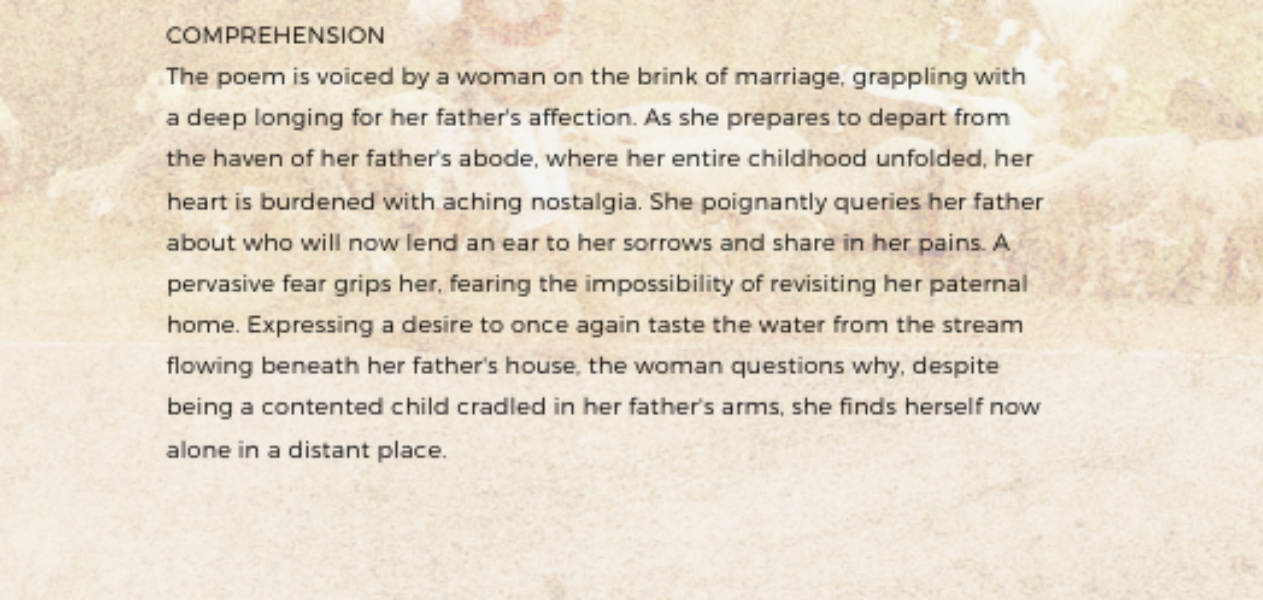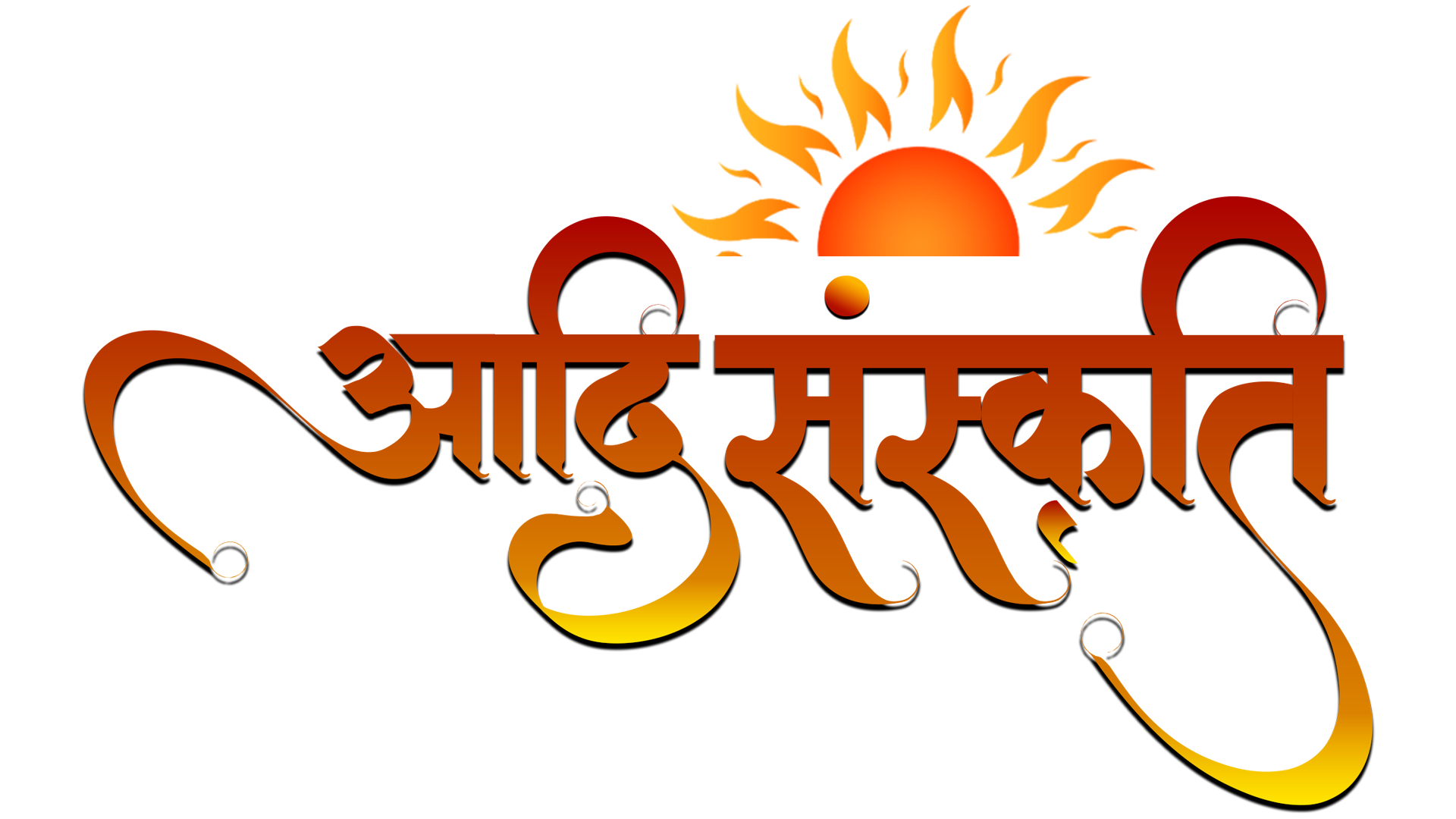tribal languages and literature
Chor Chali Hun , jammu & kashmir

Janvi is a poet famous for her depth of emotion and exploration of the themes of love, separation, and identity. She brings the subtlety of human experience, particularly relating to family life and personal growth. Her writing tends to delve into the richness of emotions occurring during major transition periods in one's life. Janvi deeply resonates with readers through her poetry, as she writes about personal and collective experiences of yearning, despair, and hope.
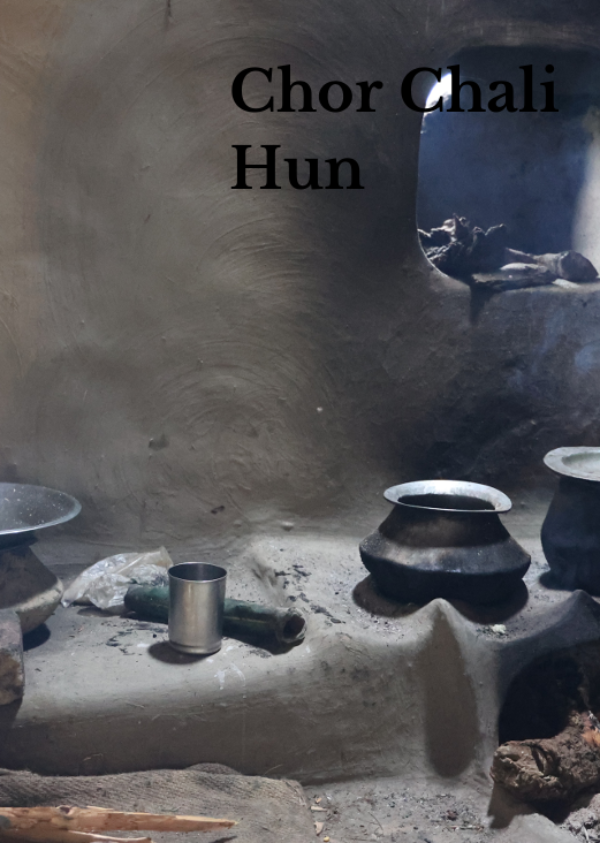
"Chor Chali Hun" is in free verse, with the poet letting the natural rhythm of emotions dictate the form instead of following a predetermined rhythm or meter. The form suits the inner conflict of the speaker, as she laments her sorrow and fear of leaving her father's house. The loose form of the poem imitates the instability of the speaker's emotions and the uncertainty associated with this great life change, underscoring her profound feeling of loss.
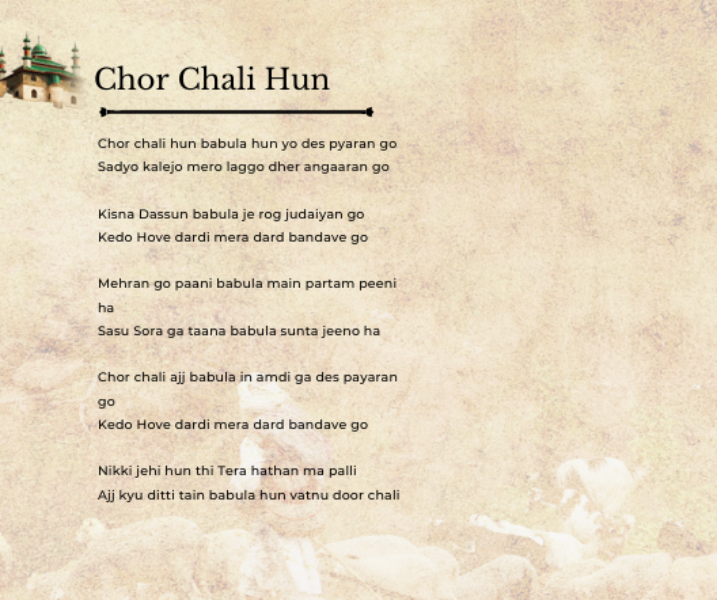
The poem does not have a traditional rhyme scheme. Free verse allows the poet to convey the inner turmoil of the speaker without the limitations of formal rhyme, facilitating a more personal and unvarnished presentation of emotions. This absence of rhyme corresponds to the pain and confusion of the speaker as she deals with the emotional turmoil of parting with her home. The form's ease works in furtherance of the theme of uncertainty since she considers what the future has in store for her.
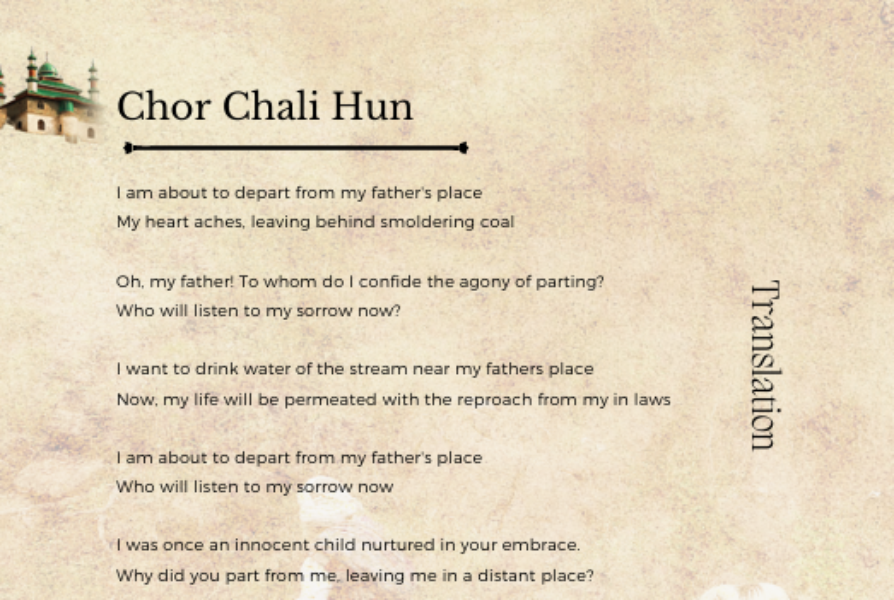
The mood of "Chor Chali Hun" is that of nostalgia, loss, and yearning. The sadness of the speaker to leave her childhood house and the soothing presence of her father is throughout the poem. The themes of separation from family, longing, and fear of abandonment are brought out, and the speaker asks who will now carry her emotional load. The poem highlights the emotional distress of transitions, especially for women as they move from the security of their father's home to marriage.
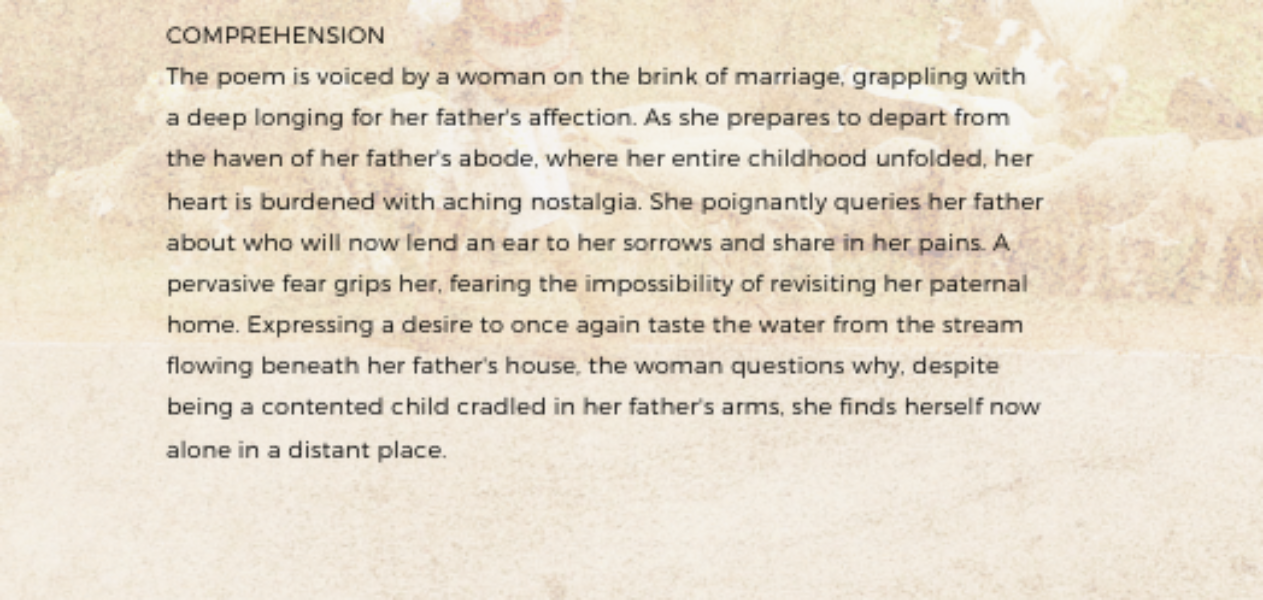
The centricity of the poem is in the speaker's emotional angst as she is about to leave her father's home. The poem is based on separation, that is, from the fount of love and protection—her father. Her emotional dilemma between clinging to her father and the cultural necessity of marriage generates the central tension of the poem. The internal conflict is the theme of the poem, summarizing the speaker's sense of abandonment, loss, and fear of the unknown.
